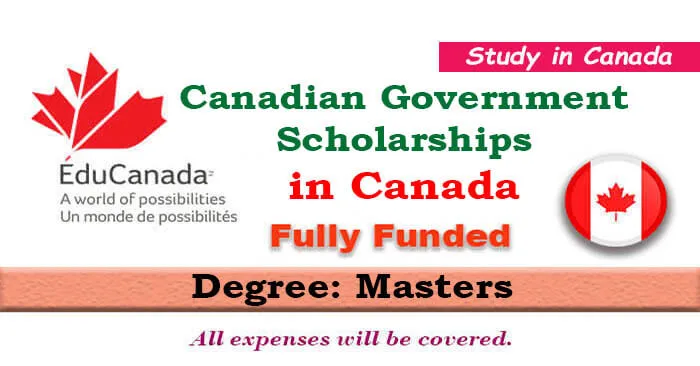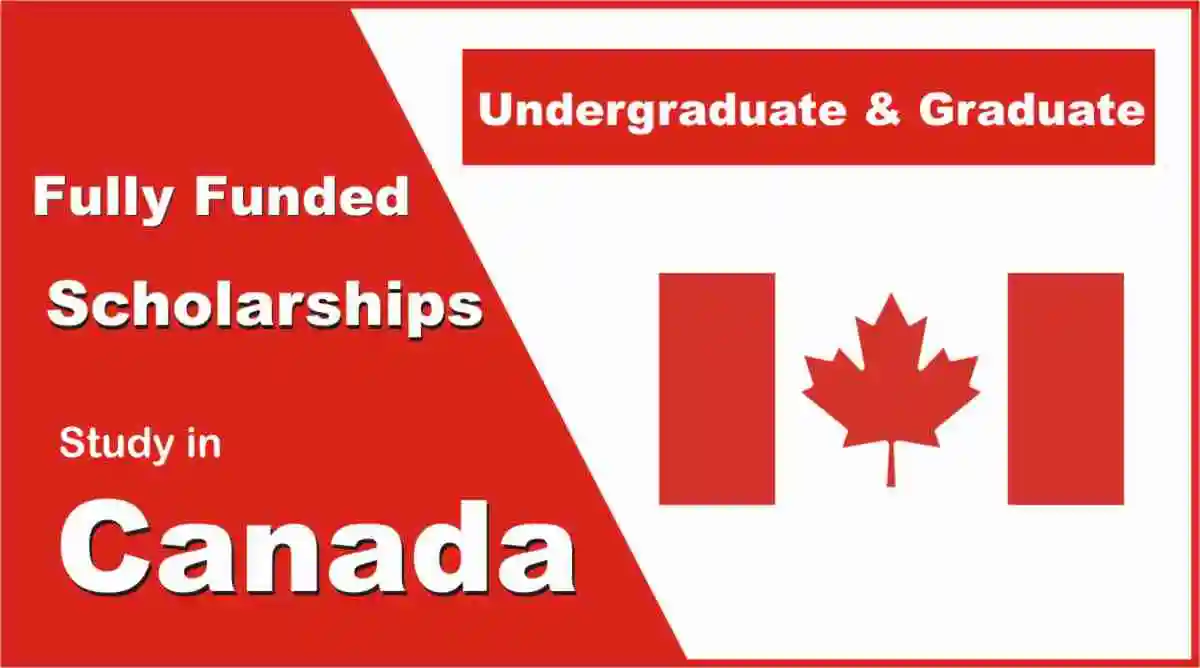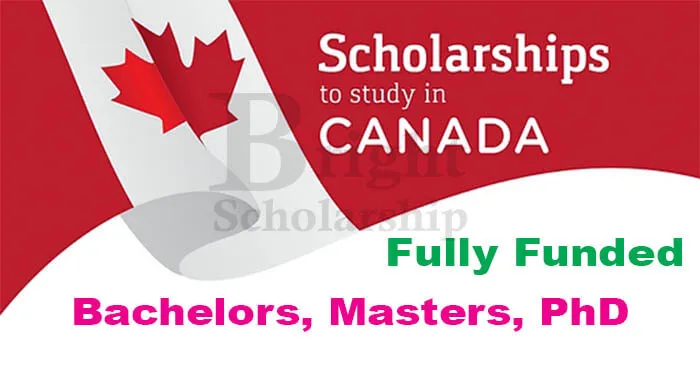Advertisements
Mastering the path to a Canadian study visa and university admission involves careful planning, thorough research, and adherence to the necessary procedures and requirements. Canada is known for its world-class education system, diverse culture, and welcoming environment for international students. Whether you’re aiming to pursue undergraduate, graduate, or postgraduate studies in Canada, here’s a comprehensive guide to help you navigate the process successfully:
Research Canadian Universities and Programs:
Researching Canadian universities and programs is a crucial step in the process of pursuing higher education in Canada. Here’s a guide to conducting comprehensive research:
- Explore University Rankings: Begin by reviewing rankings of Canadian universities provided by reputable sources such as QS World University Rankings, Times Higher Education World University Rankings, and Academic Ranking of World Universities (ARWU). These rankings assess universities based on factors like academic reputation, faculty quality, research output, and international diversity.
- Consider Location and Campus Environment: Determine whether you prefer studying in a major city, suburban area, or rural setting. Research the campus facilities, amenities, and extracurricular opportunities offered by each university. Consider factors such as climate, proximity to cultural attractions, and access to outdoor activities.
- Review Academic Programs: Explore the range of undergraduate, graduate, and professional programs offered by Canadian universities. Consider your academic interests, career goals, and preferred field of study. Look for universities known for their strengths in your chosen discipline or specialization.
- Assess Admission Requirements: Review the admission requirements for each program, including prerequisites, academic qualifications, standardized test scores (e.g., SAT, ACT, GRE, GMAT), language proficiency tests (e.g., TOEFL, IELTS), letters of recommendation, and personal statements or essays. Determine whether you meet the eligibility criteria for your desired programs.
- Evaluate Faculty and Research Opportunities: Research the faculty members and researchers associated with each university, including their areas of expertise, publications, and research projects. Explore opportunities for undergraduate research, internships, co-op programs, and industry partnerships that can enhance your academic experience and career prospects.
- Consider University Size and Student Body: Assess the size and diversity of the student population at each university. Consider factors such as student-faculty ratio, class sizes, student demographics, and campus culture. Determine whether you prefer a large university with extensive resources or a smaller university with a close-knit community.
- Review Tuition Fees and Financial Aid: Research the tuition fees, living expenses, and financial aid options available at each university. Consider factors such as scholarships, grants, bursaries, work-study programs, and student loans. Determine whether the cost of attendance aligns with your budget and financial resources.
- Explore Campus Life and Support Services: Learn about the campus life, student organizations, clubs, and recreational facilities available at each university. Research student support services such as academic advising, career counseling, health services, housing assistance, and international student support. Consider whether the university provides a supportive and inclusive environment for students from diverse backgrounds.
- Attend Virtual Events and Information Sessions: Take advantage of virtual events, webinars, and information sessions hosted by Canadian universities. Participate in virtual campus tours, academic presentations, and Q&A sessions to learn more about the university’s programs, faculty, admissions process, and student life.
- Seek Advice and Recommendations: Consult with educational counselors, teachers, mentors, and alumni who can provide insights and recommendations based on their experiences. Attend college fairs, education expos, and networking events to connect with representatives from Canadian universities and gather firsthand information.
By conducting thorough research and considering multiple factors, you can identify Canadian universities and programs that align with your academic goals, preferences, and aspirations. Take the time to gather information, ask questions, and make informed decisions as you embark on your journey to higher education in Canada.
Understand Canadian Study Visa Requirements:
Understanding Canadian study visa requirements is essential for international students planning to pursue higher education in Canada. Here’s an overview of the key requirements:
- Letter of Acceptance: Obtain a letter of acceptance from a Designated Learning Institution (DLI) in Canada. The DLI is a school approved by a provincial or territorial government to host international students.
- Proof of Sufficient Funds: Demonstrate that you have enough money to cover your tuition fees, living expenses, and return transportation. The specific amount required varies depending on factors such as the duration of your studies, location, and type of program.
- Valid Passport: Ensure that your passport is valid for the duration of your intended stay in Canada. If your passport is set to expire soon, consider renewing it before applying for a study visa.
- Payment of Application Fees: Pay the required application fees for the study permit application. The fees are non-refundable and must be paid in the currency specified by the Canadian visa office in your country.
- Medical Examination (if applicable): Undergo a medical examination if required. Some students may need to undergo a medical examination by an approved panel physician to assess their health status.
- Security Clearance (if applicable): Provide a police certificate or security clearance if required. Depending on your country of origin and previous travel history, you may need to submit a police certificate to demonstrate that you have no criminal record.
- Language Proficiency: Demonstrate proficiency in English or French by taking a language test such as the IELTS, TOEFL, or CELPIP for English, or the TEF for French. The language test results may be required as part of your study permit application.
- Proof of Intent to Return: Provide evidence of your intent to return to your home country after completing your studies in Canada. This may include ties to your home country such as family, employment prospects, or property ownership.
- Biometrics: Depending on your nationality, you may need to provide biometric information (fingerprints and photograph) as part of the visa application process. Biometric information helps Canadian authorities verify your identity and prevent identity fraud.
- Additional Documentation: Prepare any additional documentation required by the Canadian visa office in your country. This may include a statement of purpose, academic transcripts, letters of recommendation, and proof of academic qualifications.
It’s important to note that the study visa application process and requirements may vary depending on your country of citizenship and the specific circumstances of your case. Therefore, it’s advisable to consult the official website of Immigration, Refugees, and Citizenship Canada (IRCC) or contact the Canadian visa office in your country for the most up-to-date information and guidance on applying for a study visa.
Prepare for University Admission:
- Preparing for university admission in Canada involves several steps to ensure a smooth application process and increase your chances of acceptance. Here’s how you can prepare effectively:
- Research Universities and Programs: Start by researching Canadian universities and the programs they offer. Consider factors such as location, reputation, program curriculum, faculty, facilities, and extracurricular opportunities. Make a list of universities and programs that align with your academic interests, career goals, and personal preferences.
- Review Admission Requirements: Carefully review the admission requirements for each university and program on your list. Pay attention to prerequisites, academic qualifications, language proficiency requirements, standardized test scores (if applicable), application deadlines, and any supplementary documents or essays required.
- Assess Your Eligibility: Evaluate your academic background, qualifications, and achievements to determine if you meet the admission requirements for your chosen programs. If you have any academic deficiencies or gaps in your qualifications, consider taking additional courses or exams to strengthen your application.
- Prepare Academic Transcripts: Obtain official copies of your academic transcripts from all previous educational institutions you have attended. Transcripts should include grades, courses completed, and any degrees or certificates earned. If transcripts are not in English or French, you may need to provide certified translations.
- Prepare Standardized Test Scores: If required, prepare for and take standardized tests such as the SAT, ACT, GRE, GMAT, or language proficiency tests like the TOEFL or IELTS. Check the admission requirements for each university and program to determine which tests are required and the minimum score thresholds.
- Write Personal Statements or Essays: Many universities require applicants to submit personal statements or essays as part of their application. Take the time to brainstorm, draft, and revise your essays, focusing on your academic interests, career goals, personal experiences, and reasons for choosing the program and university.
- Secure Letters of Recommendation: Request letters of recommendation from teachers, professors, employers, or mentors who can speak to your academic abilities, character, work ethic, and potential for success in university studies. Choose recommenders who know you well and can provide insightful and positive assessments of your qualifications.
- Prepare a Strong Resume or CV: Compile a comprehensive resume or curriculum vitae (CV) that highlights your academic achievements, extracurricular activities, volunteer work, internships, research projects, work experience, leadership roles, and any awards or honors you have received.
- Attend University Admission Events: Attend university admission events, information sessions, open houses, and virtual tours to learn more about the universities and programs you are interested in. Take advantage of opportunities to meet with admissions representatives, faculty members, and current students to ask questions and gather information.
- Stay Organized and Meet Deadlines: Create a timeline or checklist to track application deadlines, required documents, standardized test dates, and other important milestones in the university admission process. Stay organized, manage your time effectively, and submit your applications well before the deadlines to avoid last-minute stress and ensure completeness.
By following these steps and thoroughly preparing for university admission, you can enhance your candidacy, demonstrate your qualifications and commitment, and increase your chances of securing admission to your desired programs in Canadian universities.
Finalize Travel and Accommodation Arrangements:
Finalizing travel and accommodation arrangements is a crucial step in preparing for your journey to study in Canada. Here’s how you can ensure a smooth transition:
- Book Flights: Once you have received confirmation of your study visa and university admission, book your flights to Canada. Consider factors such as travel dates, airline options, baggage allowances, layovers, and travel insurance. Aim to book your flights well in advance to secure the best deals and accommodate any visa processing or quarantine requirements.
- Arrange Airport Transfers: Plan how you will travel from the airport to your accommodation upon arrival in Canada. Research transportation options such as airport shuttles, taxis, ride-sharing services, or public transit. Consider pre-booking airport transfers to avoid delays and ensure a hassle-free arrival.
- Secure Temporary Accommodation: If you have not arranged permanent accommodation in Canada yet, consider booking temporary accommodation for your initial arrival. Look for short-term rental options such as hotels, hostels, guesthouses, or serviced apartments near your university campus or in the city where you will be studying. Websites like Airbnb, Booking.com, and Expedia offer a wide range of accommodation options to suit different budgets and preferences.
- Research Long-Term Housing: Start researching long-term housing options for your stay in Canada. Explore on-campus residence halls, off-campus apartments, shared housing, or homestay arrangements. Consider factors such as location, proximity to campus, rental prices, lease terms, amenities, and roommates. Reach out to your university’s housing office or international student services for guidance and assistance in finding suitable accommodation.
- Arrange Transportation in Canada: Familiarize yourself with transportation options in your study destination in Canada. Research public transit systems, bike-sharing programs, car rental services, and walking routes to navigate the city and commute to campus. Obtain information about student discounts or transit passes available for international students.
- Pack Essentials and Travel Documents: Make a list of essential items to pack for your journey to Canada, including clothing suitable for the climate, personal belongings, electronic devices, toiletries, medications, academic materials, and important travel documents. Ensure that you have your passport, study visa, university acceptance letter, financial documents, health insurance information, and any other required paperwork easily accessible in your carry-on luggage.
- Arrange Health Insurance: Research health insurance options for international students in Canada and arrange coverage for yourself before your departure. Many universities offer health insurance plans specifically designed for international students, while others may require you to purchase coverage independently. Understand the terms, coverage limits, premiums, and procedures for accessing healthcare services in Canada.
- Stay Informed About COVID-19 Protocols: Stay informed about COVID-19 travel restrictions, quarantine requirements, and health and safety protocols in Canada. Check government websites, university updates, and travel advisories regularly for the latest information and guidance. Follow all necessary precautions, including wearing masks, practicing social distancing, and adhering to quarantine regulations upon arrival.
By finalizing your travel and accommodation arrangements in advance, you can ensure a smooth and comfortable transition to studying in Canada. Be proactive, organized, and prepared for any challenges or adjustments you may encounter during your journey, and embrace the exciting opportunities that await you as an international student in Canada.
Tips for Success:
- Start the application process well in advance to allow ample time for gathering documents, completing forms, and meeting deadlines.
- Seek guidance from educational consultants, university advisors, or alumni who can provide insights and advice on the application process.
- Stay organized by creating a checklist of application requirements, deadlines, and tasks to ensure that you complete each step of the process systematically.
- Be proactive in seeking financial aid, scholarships, or grants to offset the cost of tuition and living expenses.
- Maintain open communication with university admissions offices, visa officers, and relevant authorities throughout the application and visa process.
Tips for success as an international student studying in Canada:
- Stay organized: Keep track of important dates, deadlines, and academic requirements. Use planners, calendars, or digital apps to manage your schedule effectively.
- Get involved: Participate in extracurricular activities, student clubs, and cultural events to enrich your university experience, make new friends, and build a supportive network.
- Seek support: Take advantage of resources and support services offered by your university, including academic advising, counseling, tutoring, and international student support programs.
- Stay connected: Maintain regular communication with family and friends back home, as well as fellow international students and classmates in Canada. Share experiences, seek advice, and offer support to one another.
- Embrace diversity: Canada is known for its multiculturalism and diversity. Be open-minded, respectful, and inclusive of people from different backgrounds, cultures, and perspectives.
- Manage finances: Budget wisely, monitor expenses, and seek opportunities for financial aid, scholarships, or part-time work to support your studies and living expenses in Canada.
- Stay healthy: Prioritize your physical and mental well-being by adopting healthy habits, managing stress, getting enough sleep, eating nutritious meals, and staying active through exercise or recreational activities.
- Stay informed: Stay informed about university policies, academic requirements, immigration regulations, and local laws in Canada. Keep up to date with news and updates related to your field of study and the broader community.
- Build professional skills: Take advantage of internships, co-op programs, volunteer opportunities, and networking events to gain practical experience, develop professional skills, and enhance your employability after graduation.
- Explore Canada: Take time to explore the natural beauty, cultural attractions, and diverse cities of Canada. Travel, sightsee, and immerse yourself in Canadian culture to make the most of your study abroad experience.
- Stay adaptable: Be prepared to adapt to new environments, academic expectations, and cultural differences. Stay flexible, resilient, and proactive in overcoming challenges and seizing opportunities for growth.
- Set goals: Set academic, personal, and career goals for yourself and work towards achieving them step by step. Stay motivated, focused, and determined to succeed in your studies and future endeavors.
By following these tips and strategies, you can maximize your success and enjoyment as an international student studying in Canada. Embrace the opportunities, challenges, and experiences that come your way, and make the most of your time studying abroad in one of the world’s most welcoming and vibrant countries.
Conclusion
Mastering the path to a Canadian study visa and university admission requires careful planning, diligent preparation, and a commitment to excellence. By following the steps outlined in this guide and leveraging available resources and support services, you can successfully pursue your academic goals in Canada and embark on a transformative educational journey. Good luck!
Advertisements






